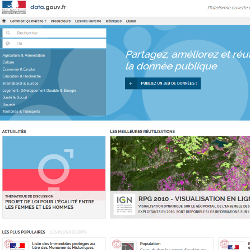Crowdfunding campaign for GnuPG
 Heise reports that the GnuPG project has launched a crowdfunding campaign to raise €24,000 for the further development of the free encryption software. According to chief developer Werner Koch, the aim of the campaign is to make GnuPG easier to use and understand for the general public. GnuPG has seen a sharp increase in popularity in the wake of Edward Snowden’s disclosures about the activities of the US’ National Security Agency (NSA) and Britain’s GCHQ.
Heise reports that the GnuPG project has launched a crowdfunding campaign to raise €24,000 for the further development of the free encryption software. According to chief developer Werner Koch, the aim of the campaign is to make GnuPG easier to use and understand for the general public. GnuPG has seen a sharp increase in popularity in the wake of Edward Snowden’s disclosures about the activities of the US’ National Security Agency (NSA) and Britain’s GCHQ.
GnuPG implements the OpenPGP and S/MIME standards (the latter with effect from version 2.0. Ed.) The software is used mainly for email encryption. Due to its open source code, the software is free of backdoors and is used amongst others by NSA whistleblower Edward Snowden, security expert Bruce Schneier and PGP inventor Phil Zimmermann.
The developers want to get version 2.1 of GnuPG ready and released with the crowdfunding monies. Major changes to the GnuPG website are also planned: pages will be adapted for viewing on mobile devices and the developers also want to link to third party instructions, videos and manuals, to provide a user-friendly download page for all devices and enable anonymous access via Tor. A new server for web services and the creation of an infrastructure for processing regular donations are also planned.
According to Joinup, GnuPG’s crowdfunding campaign will run for 40 days. The campaign was launched at 10.00 am on Thursday morning. By 5.00 pm donors had already pledged over half the requested amount. Donors can choose between donating €5 in exchange for their name being mentioned on the site, €12 in exchange for a sticker, whilst those pledging €35 euro will receive a t-shirt and those giving €60 or more will receive an email address at the GnuPG.net domain.




 Last week
Last week 
 There’s an open data meet-up taking place in central Bristol next month.
There’s an open data meet-up taking place in central Bristol next month.